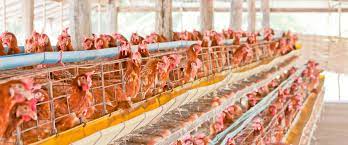Battery cages have been used by many farmers and industries in the production of eggs for a significant number of years. This system of farming sometimes called a conventional cage, is designed to house laying hens, meaning female chickens who produce eggs. These hens normally last for about 2 years in active production then get slaughtered.
“About 376 million hens are raised for eggs in the U.S., and most spend their lives in battery cages, stacked tier upon tier in huge warehouses,” People for the Ethical Treatment of Animals (PETA).For a long period of time, the question of its cruelty has been on the discussion. With experts stating, “These small, cramped, barren cages cause a host of negative physical and psychological impacts. The bones of laying hens grow brittle and easily broken, and their natural desires to scratch, explore, and nest are systematically denied,” according to Human League, an organisation that seeks to end animal cruelty.
The fight for animal cruelty has been a long strenuous battle globally. However some new strides have been witnessed with organizations, and leading supermarkets and restaurants refusing to purchase eggs from battery cages.
In our local market supermarket chain store Carrefour announced this past weekend that it will only be selling eggs produced and humane conditions. The move will lock out a huge number of local suppliers. With the prices of eggs retailing at 13 shillings per egg in most areas will this move lead to higher pricing of this commodity?







